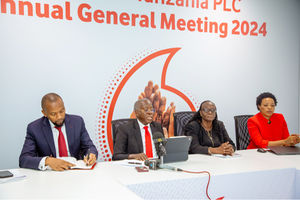Ugandan phone user set to pay annual USh5,000 tax

If a proposal by MPs is adopted, every mobile phone user will pay an annual USh5,000 tax for each handset, a move legislators say will help raise more revenue. PHOTO | FILE
What you need to know:
- With an estimated 17.5 million mobile phone handsets in the country, this tax would fetch about USh87 billion annually if adopted by Parliament
Kampala. If a proposal by MPs is adopted, every mobile phone user will pay an annual USh5,000 tax for each handset, a move legislators say will help raise more revenue.
The proposal by the shadow finance minister, Mr Geoffrey Ekanya (Tororo County), has already been endorsed by the Budget Committee of Parliament chaired by Mr Amos Lugoloobi (Ntenjeru North).
With an estimated 17.5 million mobile phone handsets in the country, this tax would fetch about USh87 billion annually if adopted by Parliament.
For the financial year 2014/15, the government needs USh14 trillion to run its operations- up from USh13 trillion for this current financial year.
“Those with mobile-phones should pay USh5,000 every year and the money will finance government activities,” Mr Ekanya said at the committee meeting yesterday.
Except for Kole County MP Fred Ebil, who opposed the idea, saying it would increase the burden on tax payers, the rest of the committee endorsed Mr Ekanya’s idea.
The idea came up for discussion as the committee debated a request by the Electoral Commission to have their salaries that were set 15 years ago reviewed.
The chairperson of the Legal Affairs Committee, Mr Stephen Tashobya, told his colleagues on the Budget Committee that USh57.3 billion was needed to effect the salary changes for the EC.
However, because of the constrained resource envelope, the Finance ministry ignored the request. It was then that Mr Ekanya proposed the mobile phone tax as a way of raising revenue.
He also proposed that tax on bottled drinking water be raised, before advising that those who think the tax will affect them “to always travel with their own water”.



